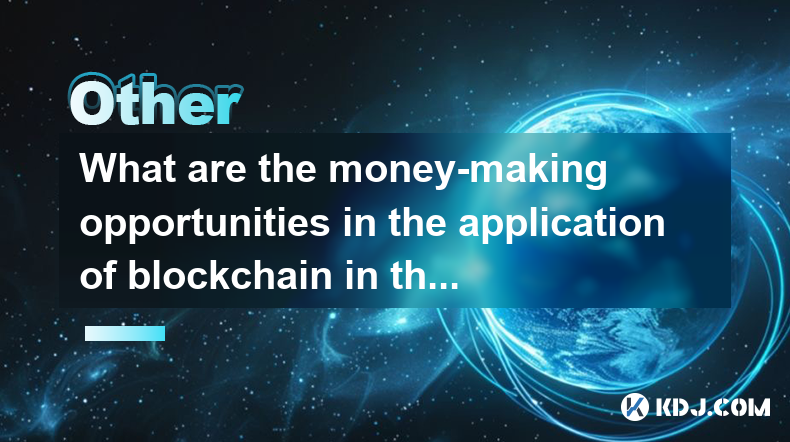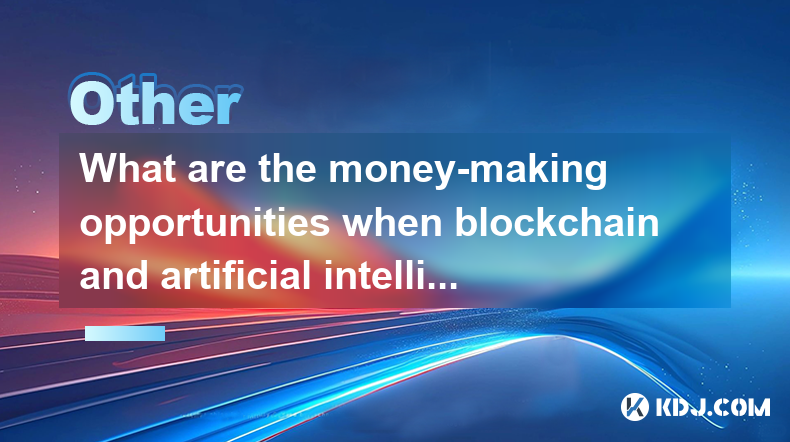-
 Bitcoin
Bitcoin $82,875.2303
0.93% -
 Ethereum
Ethereum $1,789.0401
0.22% -
 Tether USDt
Tether USDt $0.9995
-0.02% -
 XRP
XRP $2.1059
4.58% -
 BNB
BNB $592.7679
0.66% -
 Solana
Solana $118.6582
3.57% -
 USDC
USDC $0.9997
-0.02% -
 Dogecoin
Dogecoin $0.1675
5.44% -
 Cardano
Cardano $0.6530
3.44% -
 TRON
TRON $0.2399
2.34% -
 UNUS SED LEO
UNUS SED LEO $9.4576
0.78% -
 Chainlink
Chainlink $12.7169
1.25% -
 Toncoin
Toncoin $3.3640
-6.14% -
 Stellar
Stellar $0.2571
0.95% -
 Avalanche
Avalanche $17.7970
-1.23% -
 Sui
Sui $2.2295
-0.93% -
 Shiba Inu
Shiba Inu $0.0...01212
-0.69% -
 Hedera
Hedera $0.1639
2.15% -
 Litecoin
Litecoin $84.1735
2.90% -
 Polkadot
Polkadot $4.0448
1.80% -
 MANTRA
MANTRA $6.2926
-1.45% -
 Bitcoin Cash
Bitcoin Cash $297.0532
0.15% -
 Bitget Token
Bitget Token $4.5419
0.82% -
 Dai
Dai $1.0000
-0.01% -
 Ethena USDe
Ethena USDe $0.9993
-0.05% -
 Monero
Monero $216.5920
3.74% -
 Hyperliquid
Hyperliquid $11.5216
0.25% -
 Uniswap
Uniswap $5.8171
0.50% -
 Pi
Pi $0.5289
-7.26% -
 Pepe
Pepe $0.0...07047
7.02%
What is a popular explanation of blockchain
Blockchain, a distributed ledger system, offers numerous advantages including decentralization, security, and efficiency, enabling secure and transparent data management across various domains, from cryptocurrencies to healthcare.
Feb 02, 2025 at 02:42 pm

Key Points:
- Definition and Mechanisms of Blockchain: Understand the foundational concepts of blockchain, including its distributed nature, cryptographic security, and consensus mechanisms.
- Blockchain Applications: Explore the diverse applications of blockchain technology, from cryptocurrencies and decentralized finance (DeFi) to supply chain management and healthcare.
- Advantages of Blockchain: Discover the inherent benefits of blockchain, such as decentralization, transparency, security, and efficiency.
- Limitations and Challenges of Blockchain: Acknowledge the potential drawbacks and limitations of blockchain, including scalability, complexity, and interoperability issues.
- Blockchain Evolution: Trace the historical development and future prospects of blockchain technology, from Bitcoin's inception to emerging trends and advancements.
- Blockchain Adoption and Use Cases: Examine real-world examples of blockchain adoption across industries, highlighting its practical applications and value propositions.
- Blockchain Platforms and Ecosystems: Introduce leading blockchain platforms and ecosystems, discussing their unique features, capabilities, and adoption levels.
What is a Popular Explanation of Blockchain?
Blockchain technology has emerged as a revolutionary force in the digital realm, empowering secure and transparent data management across various industries. At its core, blockchain is a decentralized, distributed ledger system that maintains a continuously growing list of chronologically ordered transactions. These transactions are recorded in blocks, which are then linked and secured using cryptography.
1. Definition and Mechanisms of Blockchain:
Blockchain operates on a peer-to-peer network, where multiple nodes or computers collectively maintain the ledger. Each node holds a complete copy of the blockchain, eliminating the need for a central authority. Transactions are broadcast across the network and validated by consensus mechanisms, such as Proof-of-Work or Proof-of-Stake, ensuring their authenticity and validity.
2. Blockchain Applications:
Blockchain finds application in a wide range of domains:
- Cryptocurrencies: Bitcoin and Ethereum use blockchain to facilitate secure and transparent cryptocurrency transactions without intermediaries.
- Decentralized Finance (DeFi): Blockchain enables decentralized financial services, such as lending, borrowing, and trading, without the need for traditional intermediaries.
- Supply Chain Management: Blockchain provides traceability, transparency, and efficiency in supply chains, ensuring product authenticity and minimizing fraud.
- Healthcare: Blockchain encrypts and secures sensitive patient data, improves collaboration, and enhances the integrity of medical records.
3. Advantages of Blockchain:
Blockchain possesses several inherent advantages that set it apart from traditional systems:
- Decentralization: Eliminates single points of failure and empowers individuals with control over their data.
- Transparency: Transactions are publicly viewable and immutable, ensuring accountability and reducing the risk of fraud.
- Security: Cryptographic hashing and consensus mechanisms provide robust security, making blockchain resistant to tampering.
- Efficiency: By eliminating intermediaries, blockchain streamlines processes, reduces costs, and accelerates transaction settlement times.
4. Limitations and Challenges of Blockchain:
Despite its advantages, blockchain faces certain challenges:
- Scalability: Blockchains can struggle to process large volumes of transactions, especially with Proof-of-Work mechanisms.
- Complexity: Implementing and operating blockchain systems requires technical expertise and specialized knowledge.
- Interoperability: Different blockchain platforms often have incompatible protocols, hindering data exchange and ecosystem growth.
5. Blockchain Evolution:
Blockchain has undergone continuous evolution since its inception:
- Bitcoin (2009): Introduced the concept of a decentralized, cryptographically secured digital currency.
- Ethereum (2015): Extended blockchain functionality with smart contracts, enabling the development of decentralized applications.
- Enterprise Blockchain Solutions: Adopted blockchain principles to enhance security and transparency in various business processes.
- Emerging Trends: Cross-chain interoperability protocols, quantum-resistant cryptography, and zk-SNARKs aim to address scalability and privacy concerns.
6. Blockchain Adoption and Use Cases:
Blockchain is gaining widespread adoption across industries:
- Financial Services: Streamlining international payments, facilitating trade finance, and automating regulatory compliance.
- Supply Chain Management: Improving product tracking, reducing fraud, and optimizing inventory management.
- Healthcare: Securing patient data, simplifying medical research, and enhancing access to healthcare services.
- Government: Enhancing electoral systems, automating public services, and improving transparency in governance.
- Media and Entertainment: Managing digital rights, protecting intellectual property, and creating new revenue streams.
7. Blockchain Platforms and Ecosystems:
Several leading blockchain platforms exist:
- Bitcoin: Primary focus on digital currency transactions with a strong track record of security and stability.
- Ethereum: Supports smart contract development and enables a vibrant ecosystem of decentralized applications.
- Hyperledger Fabric: Designed for enterprise use cases, providing modularity, privacy, and scalability.
- Corda: Optimized for financial transactions, offering privacy features and interoperability with existing systems.
FAQs:
Q1. What is the difference between blockchain and cryptocurrency?
A: Blockchain is a decentralized, distributed ledger system, while cryptocurrency is a digital asset built on a blockchain. Cryptocurrencies facilitate secure and transparent transactions, while blockchain provides the underlying infrastructure.
Q2. Is blockchain completely secure?
A: Blockchain technology is highly resistant to tampering and fraud due to its cryptographic security mechanisms and consensus algorithms. However, it is important to note that not all blockchain implementations are equally secure, and vulnerabilities may exist in specific systems.
Q3. What are the advantages of decentralized blockchains?
A: Decentralization eliminates single points of control, empowers individuals with data sovereignty, and reduces the risk of censorship or manipulation by a single entity.
Disclaimer:info@kdj.com
The information provided is not trading advice. kdj.com does not assume any responsibility for any investments made based on the information provided in this article. Cryptocurrencies are highly volatile and it is highly recommended that you invest with caution after thorough research!
If you believe that the content used on this website infringes your copyright, please contact us immediately (info@kdj.com) and we will delete it promptly.
- Bitcoin (BTC) Price Breaks Below 50-Week EMA, Increasing Risk of Drop to $45K
- 2025-04-05 01:00:12
- Market makers’ blockchain transactions point to a potential $3 million arbitrage opportunity related to the depegging of the FDUSD stablecoin.
- 2025-04-05 01:00:12
- Cryptocurrency Listings Have Outperformed Traditional Stock Listings
- 2025-04-05 00:55:11
- SHIB Army Dynamics Shift: Short-Term Market Participants Exit, Long-Term Holders Grow
- 2025-04-05 00:55:11
- As the biggest and most popular cryptocurrency, it's a surprise to nobody that Bitcoin (CRYPTO: BTC)
- 2025-04-05 00:50:11
- Binance Removes Seed Tags, Expands Monitoring List, Sparking Investor Concerns
- 2025-04-05 00:50:11
Related knowledge

Is the ranking of Chinese blockchain apps real and reliable?
Apr 04,2025 at 09:01pm
The ranking of Chinese blockchain apps has become a topic of interest for many in the cryptocurrency community, as it provides insights into the popularity and adoption of blockchain technology within China. However, the reliability and authenticity of these rankings are often questioned. This article aims to delve into the factors that influence these ...

What are the future development trends of blockchain game development?
Apr 03,2025 at 05:00am
Blockchain technology has revolutionized various industries, and gaming is no exception. As we look to the future, several trends are set to shape the development of blockchain games. These trends not only promise to enhance the gaming experience but also to integrate blockchain technology more seamlessly into the gaming ecosystem. Let's explore these t...

What are the maintenance costs of blockchain system development?
Apr 03,2025 at 06:07pm
The maintenance costs of blockchain system development are multifaceted and depend on various factors. These costs can include technical maintenance, security updates, infrastructure expenses, and personnel costs. Understanding these elements is crucial for anyone planning to develop or maintain a blockchain system. Technical MaintenanceTechnical mainte...

What are the money-making models of blockchain games?
Apr 04,2025 at 02:00pm
Blockchain games have emerged as a revolutionary way for players to earn real money while enjoying their favorite pastime. These games leverage the power of blockchain technology to create unique money-making models that benefit both the players and the developers. In this article, we will explore the various money-making models of blockchain games and ...

What are the money-making opportunities in the application of blockchain in the medical industry?
Apr 03,2025 at 03:35am
The integration of blockchain technology into the medical industry presents a myriad of money-making opportunities that can revolutionize healthcare systems. Blockchain's inherent characteristics, such as transparency, security, and immutability, make it an ideal solution for various medical applications. By leveraging blockchain, companies can develop ...

What are the money-making opportunities when blockchain and artificial intelligence are combined?
Apr 04,2025 at 01:28am
The convergence of blockchain and artificial intelligence (AI) presents a myriad of money-making opportunities within the cryptocurrency circle. This fusion leverages the decentralized and secure nature of blockchain with the analytical prowess of AI, creating innovative solutions and platforms that can generate significant revenue. From enhancing tradi...

Is the ranking of Chinese blockchain apps real and reliable?
Apr 04,2025 at 09:01pm
The ranking of Chinese blockchain apps has become a topic of interest for many in the cryptocurrency community, as it provides insights into the popularity and adoption of blockchain technology within China. However, the reliability and authenticity of these rankings are often questioned. This article aims to delve into the factors that influence these ...

What are the future development trends of blockchain game development?
Apr 03,2025 at 05:00am
Blockchain technology has revolutionized various industries, and gaming is no exception. As we look to the future, several trends are set to shape the development of blockchain games. These trends not only promise to enhance the gaming experience but also to integrate blockchain technology more seamlessly into the gaming ecosystem. Let's explore these t...

What are the maintenance costs of blockchain system development?
Apr 03,2025 at 06:07pm
The maintenance costs of blockchain system development are multifaceted and depend on various factors. These costs can include technical maintenance, security updates, infrastructure expenses, and personnel costs. Understanding these elements is crucial for anyone planning to develop or maintain a blockchain system. Technical MaintenanceTechnical mainte...

What are the money-making models of blockchain games?
Apr 04,2025 at 02:00pm
Blockchain games have emerged as a revolutionary way for players to earn real money while enjoying their favorite pastime. These games leverage the power of blockchain technology to create unique money-making models that benefit both the players and the developers. In this article, we will explore the various money-making models of blockchain games and ...

What are the money-making opportunities in the application of blockchain in the medical industry?
Apr 03,2025 at 03:35am
The integration of blockchain technology into the medical industry presents a myriad of money-making opportunities that can revolutionize healthcare systems. Blockchain's inherent characteristics, such as transparency, security, and immutability, make it an ideal solution for various medical applications. By leveraging blockchain, companies can develop ...

What are the money-making opportunities when blockchain and artificial intelligence are combined?
Apr 04,2025 at 01:28am
The convergence of blockchain and artificial intelligence (AI) presents a myriad of money-making opportunities within the cryptocurrency circle. This fusion leverages the decentralized and secure nature of blockchain with the analytical prowess of AI, creating innovative solutions and platforms that can generate significant revenue. From enhancing tradi...
See all articles





















































































